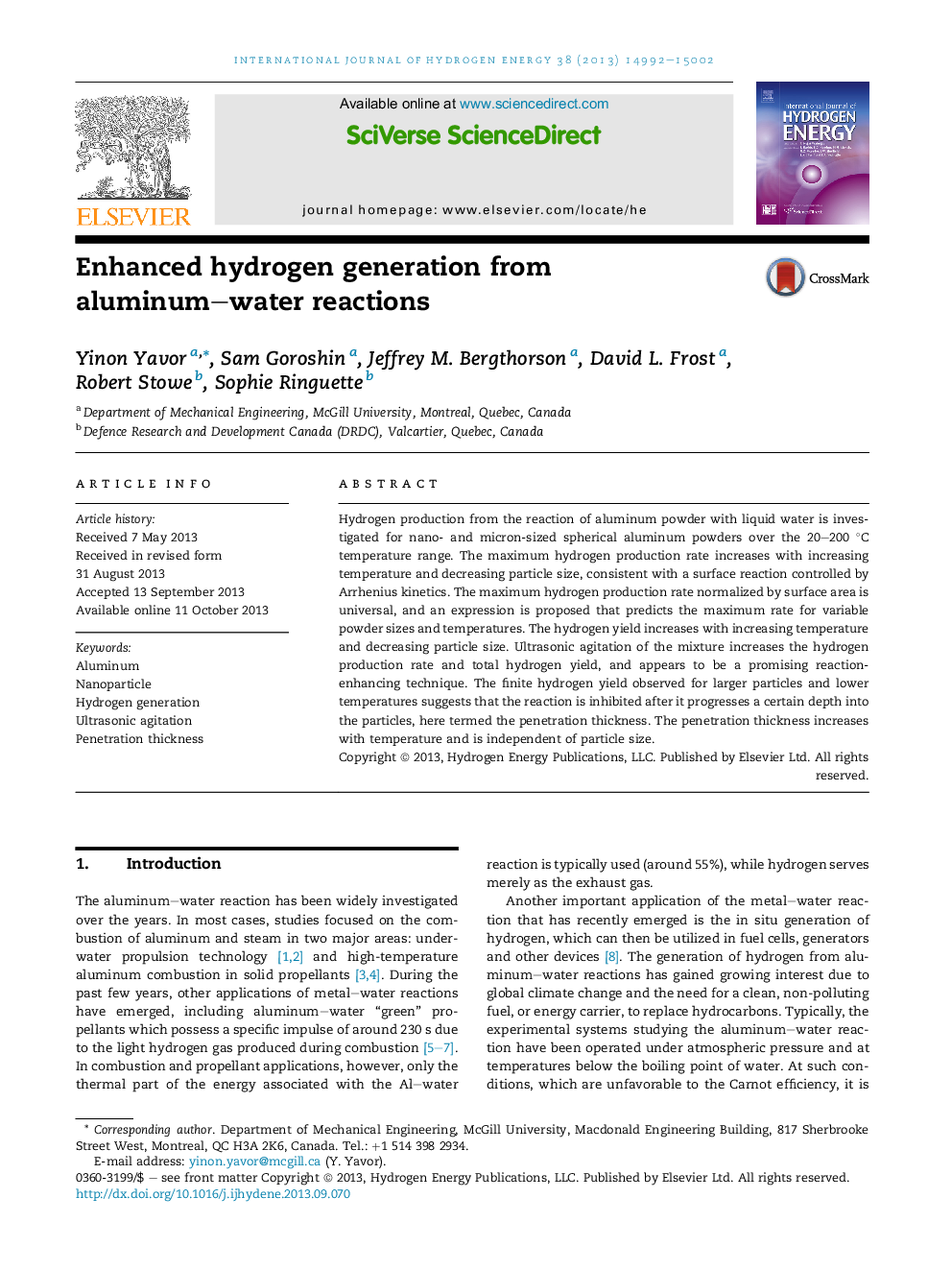| Article ID | Journal | Published Year | Pages | File Type |
|---|---|---|---|---|
| 7720967 | International Journal of Hydrogen Energy | 2013 | 11 Pages |
Abstract
Hydrogen production from the reaction of aluminum powder with liquid water is investigated for nano- and micron-sized spherical aluminum powders over the 20-200 °C temperature range. The maximum hydrogen production rate increases with increasing temperature and decreasing particle size, consistent with a surface reaction controlled by Arrhenius kinetics. The maximum hydrogen production rate normalized by surface area is universal, and an expression is proposed that predicts the maximum rate for variable powder sizes and temperatures. The hydrogen yield increases with increasing temperature and decreasing particle size. Ultrasonic agitation of the mixture increases the hydrogen production rate and total hydrogen yield, and appears to be a promising reaction-enhancing technique. The finite hydrogen yield observed for larger particles and lower temperatures suggests that the reaction is inhibited after it progresses a certain depth into the particles, here termed the penetration thickness. The penetration thickness increases with temperature and is independent of particle size.
Related Topics
Physical Sciences and Engineering
Chemistry
Electrochemistry
Authors
Yinon Yavor, Sam Goroshin, Jeffrey M. Bergthorson, David L. Frost, Robert Stowe, Sophie Ringuette,
